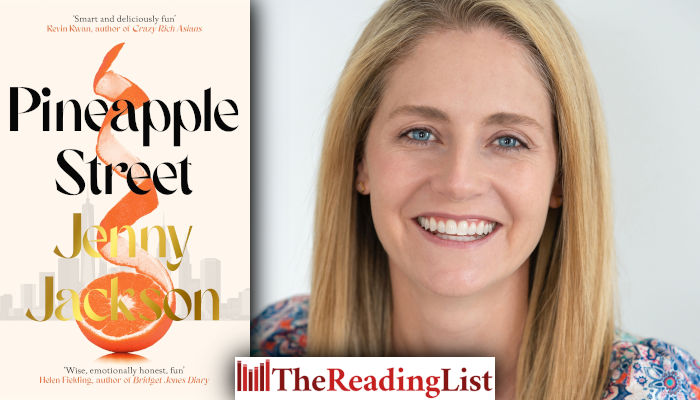In conversation with Jenny Jackson on her debut novel Pineapple Street – a witty exploration of family, money, love and heartbreak
More about the book!

Pineapple Street is an unputdownable debut, following three women in an old Brooklyn Heights clan: one who was born with money, one who married into it, and one who wants to give it all away.
Read an interview with the author Jenny Jackson.
‘I wanted to write about that funny feeling of being an outlaw among your in-laws, that feeling that no matter how long you are married, you’re never really one of them.’
What inspired you to write Pineapple Street?
My little family of four spent much of the pandemic living with in-laws; my husband’s parents in Connecticut, and my parents in Massachusetts. It was amazing in ninety-nine ways – they helped with Zoom school and childcare, we had movie nights and long hikes in the woods – but it was also really funny to see how different our families of origin sometimes felt. I tease my in-laws about their plants (I think they must have two hundred plants in their house. They take pictures of them and call them their ‘grandbabies’.) and I know my husband is mystified by my parents’ crazy art collection (They have tons of friends who are painters and some of their art – like the stuff featuring naked people and cats – is pretty weird.). So, I wanted to write about that funny feeling of being an outlaw among your in-laws, that feeling that no matter how long you are married you’ll never really get the plant-thing or the naked-people-with-cats-art-thing – you’re never really one of them.
Each member of the wealthy Stockton family navigates their generational wealth in a different way. These differences reveal how personal our insecurities, guilt, and pride about money can be. When you created these characters, how did you develop their unique relationships to the family fortune?
Darley, the eldest, was born into money but gave up her inheritance when she married a successful Korean–American investment banker and refused to have him sign the pre-nup, locking herself out of her trust fund. Darley is a romantic and she has always had some shame surrounding her wealth. Sasha is the outsider, a middle-class girl from New England who has married into the family, moved into their ancestral limestone on Pineapple Street, but finds herself bewildered by the rites and rituals of the one percent. Sasha likes to think that she is immune to the allure of money, but that allure is insidious. And Georgiana is the baby of the family, the Gen Z social conscience who grew up rich and spoiled and is suddenly seeing herself for the first time and questioning the morality of extreme wealth in a world with extreme poverty. I am very aware that Georgiana’s age means she has a really different attitude about money than the other characters. I am what we like to call a ‘geriatric millennial’ and so I wanted to explore the rift between people my age and people a decade younger.
When middle-class Sasha marries into the family, she becomes a keen observer of the Stocktons’ norms and rituals. How is the role of an in-law like the role of a novelist?
You know how when there is a gas leak in a house people who have been inside all day can’t really smell it, but then if someone walks in from outside the smell is overwhelming? I think the in-law is that person walking in from outside. They see things that are totally ingrained, that have developed over decades, totally whack-a-doo behavior that has come to seem normal in a family. A novelist should operate in the same way, noticing everything, being both a part of the household but also seeing things with fresh eyes (or nose).
What do you hope readers take away from the novel?
I’d like for readers to feel a sense of joy. I hope they will see that these very flawed, occasionally ridiculous people are a family bound by love, all doing their best to evolve in a changing world, all trying to be good. I have a soft spot for even my most spoiled and ill-behaved characters, and I hope you will too. I hope it makes readers laugh.
Pineapple Street hits shelves in April.
~~~
This article was originally published in The Penguin Post, a magazine from Penguin Random House South Africa.
Categories Fiction International
Tags Interviews Jenny Jackson Penguin Random House SA Pineapple Street The Penguin Post
